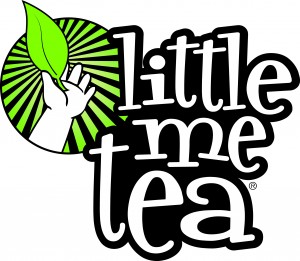It’s the developing stigma around CSDs that Howell, who grew up with 2-liter bottles of Coke as a go-to purchase, is exploiting with Rooibee Roo. The idea is that if consumers are tired of rationalizing the use of, say, the caramel color and phosphoric acid in Coke, it allows Howell and other entrepreneurs to engage in Expo West’s oft-repeated mantra of “transparency.”
“We’re kind of pulling the Band-Aid off,” Howell said of her ingredients. “We’re letting you see what’s underneath.”
Rooibee Roo is USDA organic, rich in antioxidants, gluten-free and contains no high fructose corn syrup and 100 percent of the daily recommended value of Vitamin C, according to the company. In 8 oz. BPA-free plastic bottles, the product has 49 calories and 12 or fewer grams of sugar and comes in three flavors: Cherry, Mango and Orange, with Raspberry and Orange flavors in the works. A 6-pack has a suggested retail price of $5.98 and, in smaller chains, $6.99.
Howell said a buyer who had visited her Expo West booth had called Rooibee Roo “progressive.” She’s aware that term could be viewed both as progressive innovation that’s ready for the big leagues or as a bit player that’s too progressive for scalability, but she feels optimistic. She said that the product, which launched at the show, has drawn interest from not just natural and organic shops, but also conventional outlets.
Howell said she feels good about Rooibee Roo sitting on mainstream shelves, next to products with more sugar and a marginally cheaper price point. She’s letting the product speak for itself.
“It’s all you,” she said. “To me, that’s the American way. You have the freedom to pick.”

“Everybody understands now that the 100 percent juice box is sort of going, you know, the way of the dinosaurs,” Hicks said.
That’s not to say that the box as a form factor isn’t alive and well: Hicks had juice boxes on her company’s radar, but demand for the product, she said, had forced her to expedite the arrival (summer 2013) of 6.75 oz. juice boxes in two flavors: Julia’s Tropical Tea and Zane’s Grape Tea, and resulted in the discontinuation of a 32 oz. size. Per serving, the products contain 25 calories and 6 grams of sugar — low counts compared to similar products on the market.
The packaging of Little Me Tea prominently features the faces of a boy and a girl. Hicks said that the design serves as a throwback to what packaging used to be, when it was more wholesome and friendly, when it symbolized the product of a family company like her own. Hicks said that she has a kid, so she feels an emotional connection to other kids. The packaging, she said, could have a similar effect on parents and kids.
Some kids just want to drink “girl tea,” others want only “boy tea,” she said. Some don’t care. The package for the company’s next variety, a fruit punch flavor that will launch this summer amid the back-to-school rush, will feature a boy and a girl on the front. She doesn’t want to exclude any consumers, she said, even though the company’s quickly-expanding footprint suggests nothing of the sort.
Since its launch in June 2011, Atlanta-based Little Me Tea has reached distribution agreements with UNFI, KeHe and Nature’s Best. The tea has gone from a few pockets of distribution to placement in more than 30 states, including most of the Southeast and progress in the Northeast, Midwest and Northwest, among other regions.